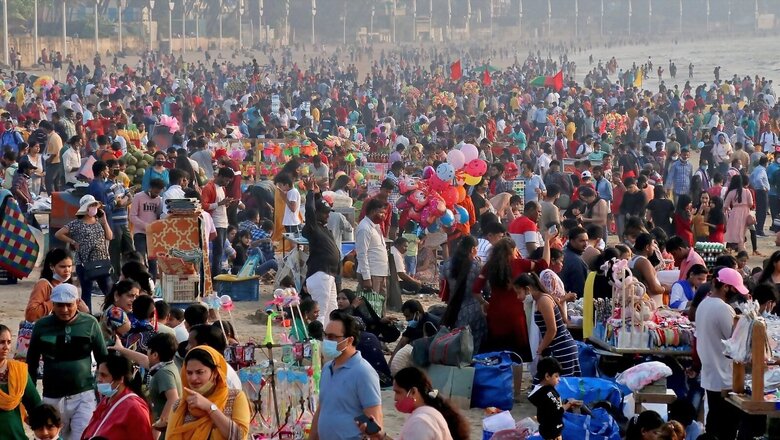
views
Even as Mumbai grapples with a rise in Covid cases amid the emergence of the infectious Omicron variant, air quality has become another woe, with numbers dipping in the city and Pune to ‘poor’ and ‘moderate’ respectively, reports said.
Both particulate matter (PM10 and PM2.5) have exceeding their maximum permissible limits in the areas, according to an update by the Indian Institute of Tropical Meteorology’s (IITM) System of Air Quality Forecasting and Research (SAFAR).
With Covid-19 cases on the rise, health experts have advised citizens to limit their exposure to pollutants as much as possible by using adequate masking measures, a report by the Times of India said. They said even brief exposure to polluted air can predispose a person to the infection.
Several international studies have linked air pollution to an increased risk of Covid-19 infection. According to a recent Chinese study, short-term exposure to PM2.5 and PM10 increased the incidence and mortality of Covid-19 more than long-term exposure, whereas for other air pollutants, such as SO2 and NO2, long-term exposure was more significant than short-term exposure.
SAFAR readings said air quality in areas such as BKC, Chembur, Mazgaon, and Colaba fell into the ‘poor’ and ‘very poor’ categories. The last 10-day average PM10 and PM 2.5 concentrations in both cities showed pollutants were above the maximum allowable limit on all days, with PM10 concentrations in Mumbai being twice the allowable limit on some days.
“Covid is an air-borne droplet virus. Winter sees the incidence of pollution, fog and smog, all three together. There is a larger number of suspended particulate matter in the air in such a scenario, which increases the risk of transmission of viral infections via airborne droplets. Covid being an airborne droplet virus, there is an enhanced risk of its transmission as well during such environmental conditions,” State Covid-19 task force member Dr Shashank Joshi told the Times of India.
Other flu-like illnesses may also be more contagious when air pollution levels are high, the expert said, adding that pollution, fog, and smog all contribute to an increase in winter respiratory infections.
Joshi said that as a result, Covid peaks occurred in winter regions such as Europe and the United States during the colder season. In India, it was the polar opposite, with Covid peaks being so far in the summer. “Omicron, on the other hand, has the potential to reverse this trend due to its higher transmissibility. As a result, citizens must adhere to strict double masking,” he said.
Read all the Latest India News here




















Comments
0 comment